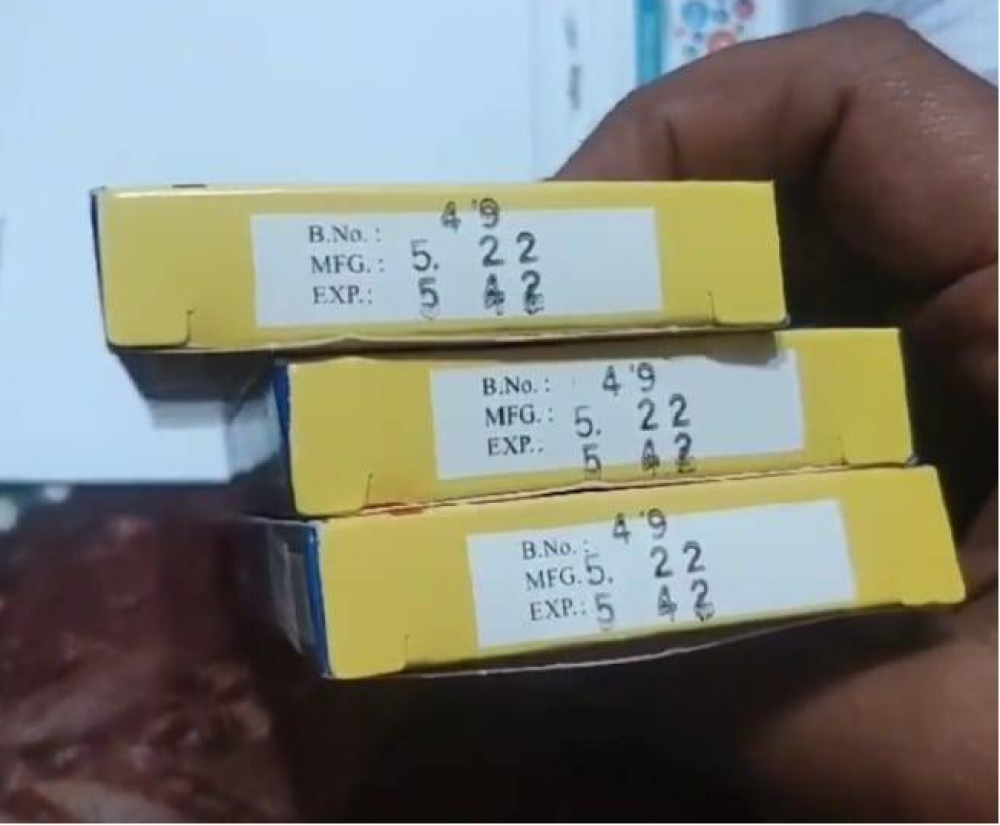counterfeit medicine in Yemen...corruption ,chaos sponsored by Houthis


Pharmacy profession in Houthi-controlled areas is no longer limited to those qualified in this field only. On the streets of Sanaa, medicines are sold in grocery stores along with food and detergents, especially common medicines such as tranquilizers, sexual stimulants, and anti-anxiety and depression medications, while smuggled, counterfeit and expired medicines are widespread and are circulated without supervision or awareness of their dangers.
The medical community in the Yemeni capital, Sana'a, is mocking the Houthi authorities, who control the health and higher education sectors, organizing a conference to discuss pharmacy students' research, and a pharmaceutical exhibition for pharmaceutical manufacturing, while the same authorities are waging a war on children's vaccines, and are deliberately turning a blind eye to tampering in the drug market, and even participating in it. .
These two events come weeks after it was discovered that children, cancer patients at Kuwait University Hospital, were suffering from serious symptoms similar to the symptoms that afflicted 21 other children a year ago, 11 of whom died due to a dose of contaminated medicine, a case in which a Houthi court acquitted those responsible a few days ago.
Expiration
After a long search in various pharmacies, Fatima Ghaylan found the drug “Combipress” to treat her mother’s high blood pressure, and the expiration date on its package was still valid. She paid for it and returned home, but her sister discovered that the expiration date on the drug strip had expired some time ago.
During her search for the medicine, Fatima found more than one package with an expired or incomprehensible expiration date, and a number of pharmacists offered her cheaper and less efficient alternatives to the required medicine. However, she insisted on following the doctor’s recommendation to search for the specific medicine, after hundreds of counterfeit and expired medicines spread. So much so that she found one of her mother's medicines being sold in a supermarket.
The pharmacist who sold Fatima the expired medicine apologized, returned the amount she paid for it, and advised her to order the medicine from her relatives or acquaintances outside the Houthi-controlled areas or from outside the country.
The absence of control
Pharmacists working in the Yemeni capital, Sana'a, disavow participation in the promotion of counterfeit medicines, although some of them admit to being aware of the sale of expired ones. They justify this by saying that the expired medicine does not cause harm to the patient, and in the worst cases its effectiveness only decreases, due to the interruption of the supply of a large number of medicines. ; They see selling expired items as a necessity.
However, pharmacist Assem Hazza refutes these allegations, and warns that expired medications may be among the most dangerous poisons and lead to many disorders and diseases. There are many facts and testimonies of patients whose health conditions deteriorated or who developed other symptoms due to expired medications, not to mention that they were smuggled. Or stored in poor conditions.
He gives an example of the drug "CellCept", many of those who took it complained of deteriorating conditions and serious symptoms. This drug enters Yemen through smuggling despite its great importance for patients who have undergone organ transplants. During smuggling, it is exposed to poor conditions in storage and transportation, and large quantities of it are being smuggled almost to the limit. It has expired in several countries.
Medical and pharmacy sources accuse the Houthi group of causing the spread of smuggled, counterfeit and expired medicines. According to pharmacist Jihad Abdel-Wareth, a pseudonym: If there is good faith in the group, it can be said that the failure of the health sector it controls to provide life-saving medicines is the main reason for drug smuggling.
He denies that the Houthi group is making sufficient efforts to combat smuggling, otherwise it would not have allowed the spread of smuggled, counterfeit and expired medicines in the Yemeni medicine market, pointing out that a large number of commonly used items, such as sedatives, hypnotics, and heart and stomach medicines, are sold in various stores, and even in some stores. Hawkers.

Tehran — Iranian Foreign Ministry spokesman Ismail Baghaei has voiced concern over the latest developments unfolding in Yemen, particularly i…

A new media report has revealed that Google is embarking on a major subsea cable initiative, dubbed Blue Raman, in a strategic move to establish a…

Muscat – Thousands of Yemeni families are anxiously watching the ongoing prisoner exchange talks in Muscat, Oman, hoping for a breakthrough t…